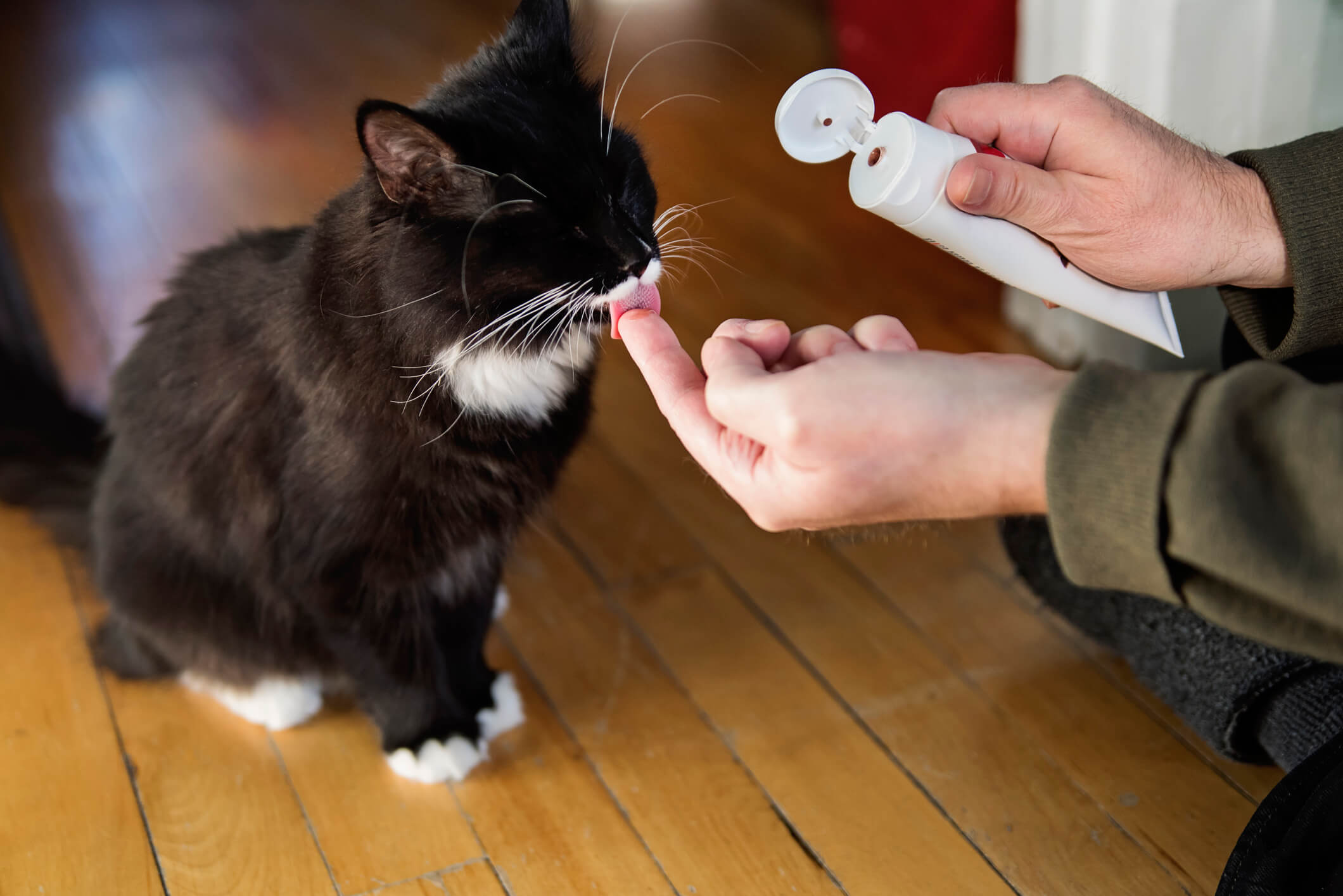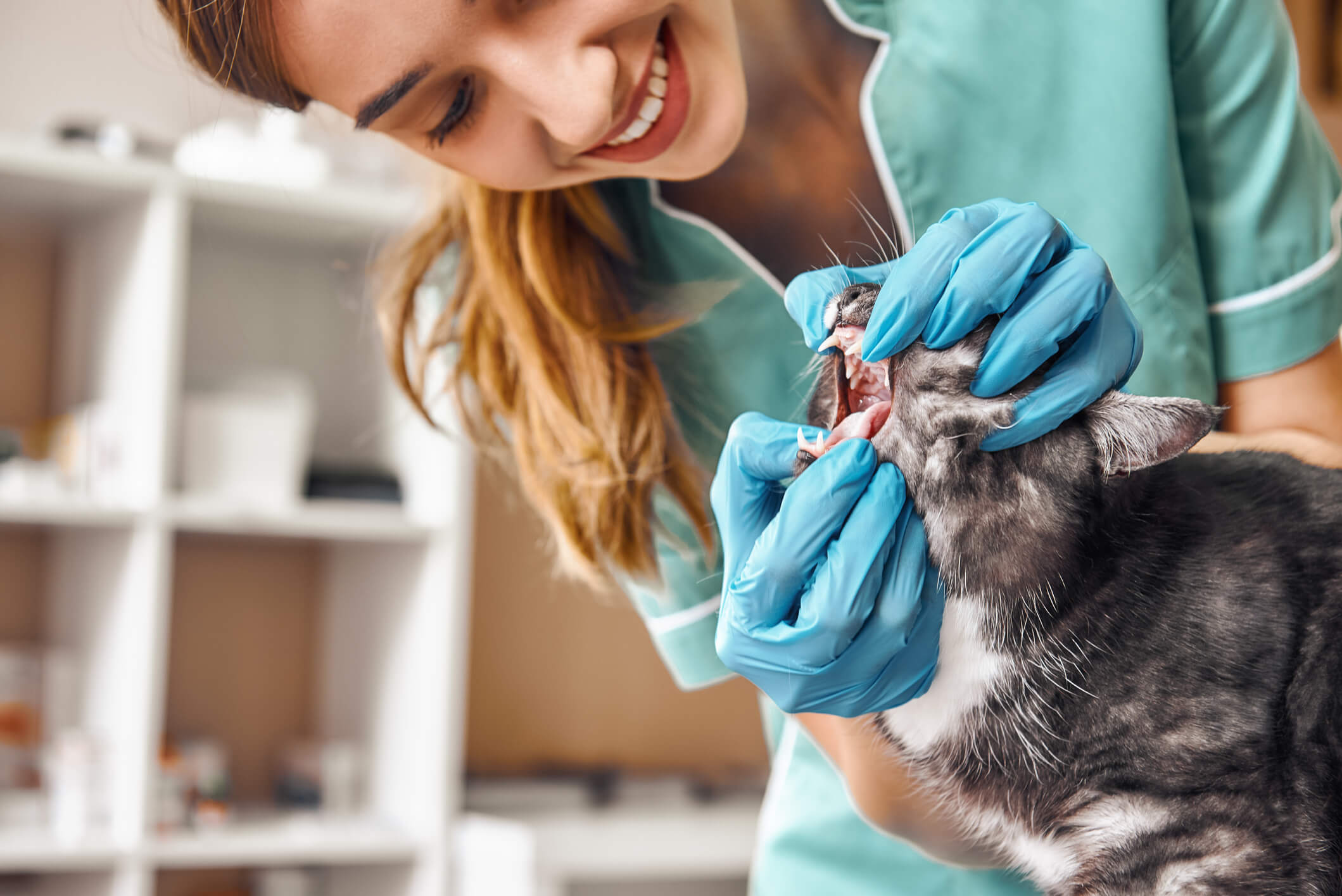
How to Care for Your Cat's Teeth Without Brushing
Keeping your cat’s teeth and gums healthy is important no matter how old they are. Unfortunately, our feline friends aren’t fond of having a toothbrush and gel used in their mouths. If your kitty refuses to let you brush their teeth, all hope isn’t lost for their oral health! There are a few other methods you can use to protect their teeth.
Here are a few of the best brushing alternatives to help your cat avoid problems like bad breath, tooth decay and periodontal disease.
Specialized food
Some specialty cat foods are designed to improve the dental health of our feline friends. These foods might contain certain nutrients that can greatly improve a cat’s oral health, including zinc, calcium and more. These types of foods are usually larger and a bit more abrasive than traditional kibble, as well. As your cat chews, the larger pieces might help knock off plaque that has built up on your cat’s teeth.
There are many different types of dental diets for cats, and some will only be accessible via a prescription from your vet. Before putting your cat on a specialty food for oral health, make sure you consult your veterinarian to ensure your cat will still be getting the appropriate nutrients and calories each day.
Adding an oral health supplement to your pet’s daily diet might also make a difference. Herbal supplements might protect your pet’s gums and help prevent bad breath and gum disease.

Dental treats and toys
Do you have a playful cat that loves toys and treats? There are plenty of “fun” cat products available that may improve their dental health! Some cat toys on the market have a flossing effect that can help clean in between your cat’s teeth. These toys are often designed to look like things cats enjoy playing with but are made from a rubberized material that’s slightly abrasive against the teeth.
In addition to dental toys, your cat might also benefit from dental sticks or treats. These specially formulated treats are designed to work similarly to dental diets and toys by removing some of the plaque along your cat’s teeth and gums. They might even help reduce your cat’s stinky breath! Keep in mind that dental treats contain calories, so they should be considered alongside your pet’s diet. Before purchasing any of these products, it’s important to do proper research and consult your veterinarian.
Dental exams and professional cleanings
Unfortunately, dental toys, treats and specialized foods are no substitute for routine brushing and cannot provide the same protection against decay or gum disease. Therefore, you should have your cat’s teeth examined by a veterinarian regularly.
During their dental exam, your vet will look at your cat’s teeth and gums to check for plaque and any signs of damage or disease. In some cases, your vet may need have an X-ray done to get a better understanding of your cat’s oral health.
Professional cleanings are also recommended for all cats every once in a while. Many vets offer teeth cleaning services, where they use anesthesia to keep your kitty relaxed while they remove all the plaque and tartar from their mouth. Cats who refuse to have their teeth brushed at home may need to have their teeth cleaned professionally more often. Discuss your pet’s oral health schedule with your vet to ensure you stay on top of any problems.

The importance of keeping your cat’s mouth clean
Dental health is something every cat owner should pay attention to, whether your cat allows you to brush their teeth or not. Teeth and gum issues in your pet can cause them great discomfort and might even cause them to lose teeth. If their oral health issues get really bad, your cat might refuse to eat, which can lead to a number of other health problems. And, if left unchecked, gingivitis can lead to more severe periodontal disease, which not only affects the mouth but the entire body.
If you’re worried about your cat’s dental health, try to do a quick examination of their mouth at home. Major problems can usually be spotted right away, including missing teeth or red and bleeding gums. If you notice these problems, or if your cat is showing signs of oral pain, then it’s best to take them to the vet right away.
Fortunately, you can help your cat avoid these tooth troubles by administering preventative oral health from a young age. Whether you brush at home or use oral health products alongside routine professional cleanings, you’ll keep your kitty’s teeth pearly white and healthy for years.


